
David Cross: the 10 records that changed my life
It is perhaps inevitable that writer-actor-producer-director and stand-up comic David Cross will one day add yet another talent to his multi-hyphenate status. But one thing the Arrested Development star (who, along with Bob Odenkirk, created the groundbreaking comedy series Mr. Show With Bob And David) makes entirely clear is that the role of musician won’t be in his elongated list of credits.
“A number of comics do turn out to be frustrated musicians, and sometimes musicians, especially drummers, are frustrated comics," Cross notes. "As for myself, I'm just not musically adept. I tried learning banjo, but I just couldn’t get past that hump where it becomes muscle memory and intuitive. At school, I tried to learn guitar and I tried to learn drums, but I didn’t have the aptitude or the patience. I'm just not skilled in that way."
So he'll just have to settle for doing all the other things he does so well: creating and starring in the TV series The Increasingly Poor Decisions Of Todd Margaret, turning in memorable performances in indie flicks (It's A Disaster) and family-oriented franchises (Alvin And The Chipmunks) or practically re-animating the comedy album genre with a trilogy of brilliant releases (2002's Shut Up You Fucking Baby!, 2004's It's Not Funny and Bigger and Blackerer from 2010), all of them packed with fearless, savage satire and distinguished, contrastingly, by Cross' lilting, gleeful performance style.
A longtime music fan (he's appeared in music videos by everyone from Superchunk to the Beastie Boys), Cross characterizes any similarities between his own work and the records he listens to as "sort of invisible. There's probably some sort of shared sensibility there. I like a lot of different types of music, but I’m probably predisposed to that indie-punk, thrashy ethos. That’s the kind of thing I like live, but my actual music collection is more diverse."
Whether he continues to add actual albums to that library isn't much of a concern for Cross. Weighing in on the steady decline of the LP, he says simply, “Things change. I think it’s a waste of time to lament it and to worry about people lamenting it. I just roll my eyes at people who curl their fist up at change. I don't care about the physical manifestation of how you get your music, because it really is about the music.”
On the following pages, Cross runs down 10 records that he remembers as being significant in his life. “They’re not necessarily my favorites," he stresses. "In fact, probably only one of them would be on my top 10 list of favorite albums. But these records are important to me for various reasons. They stick out as being eventful."
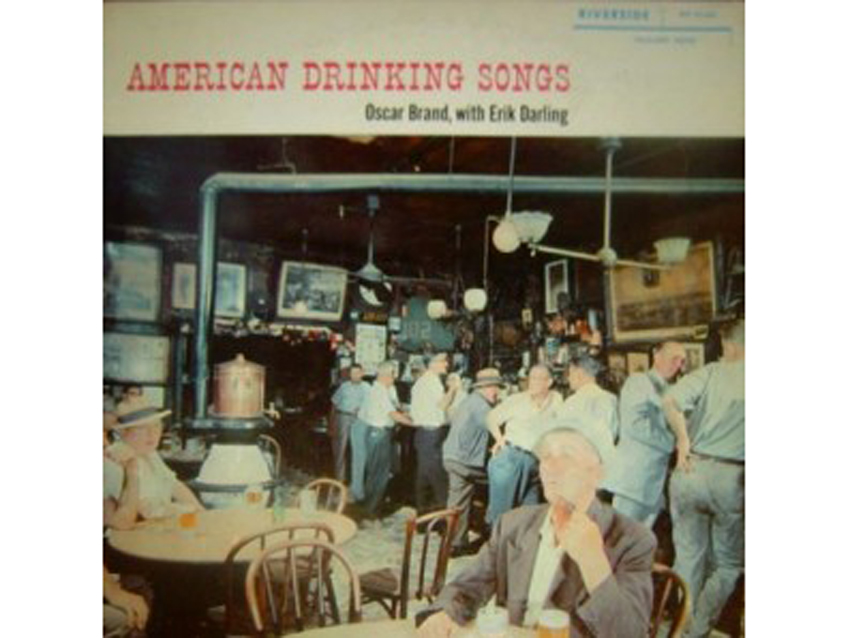
Oscar Brand - American Drinking Songs (1956)
“There were two records I loved when I was a little kid – I’m talking four, five, six years old. One was Roger Miller’s Greatest Hits; I made my mom and dad play it over and over again. But I'm going to talk another record that was probably more important in that it subconsciously informed who I am, and that’s Oscar Brand’s American Drinking Songs.
“I’m a fairly heavy drinker and have been for a long, long, long time. I’m not an alcoholic, but I do socialize a lot. I drink at home, or I’ll go to bars by myself, so I drink every night pretty much, unless I’m very sick. I have a very strange, high tolerance for alcohol, and I could always drink more than my friends.
“American Drinking Songs had a photo of people in a bar drinking – I remember that. I haven’t heard the record since I was seven or so, but the song Little Brown Jug was my favorite. I remember how it goes: [sings] ‘Oh ho ho, oh hee hee, little brown jug and I love thee.’
“I didn’t even know what drinking was when I first heard the album – I certainly didn’t have a taste for alcohol then – but the concept that came from the songs seemed like so much fun: You get this thing in your glass, you drink it, and then you have a good time singing. So this record sowed the first seed for my predilection for going to bars and socializing. And, of course, I don’t mean nightclubs; I mean actual dive bars, where you go and you have conversations for five hours about religion and philosophy and politics and pop culture and shit with a bunch of strangers.”
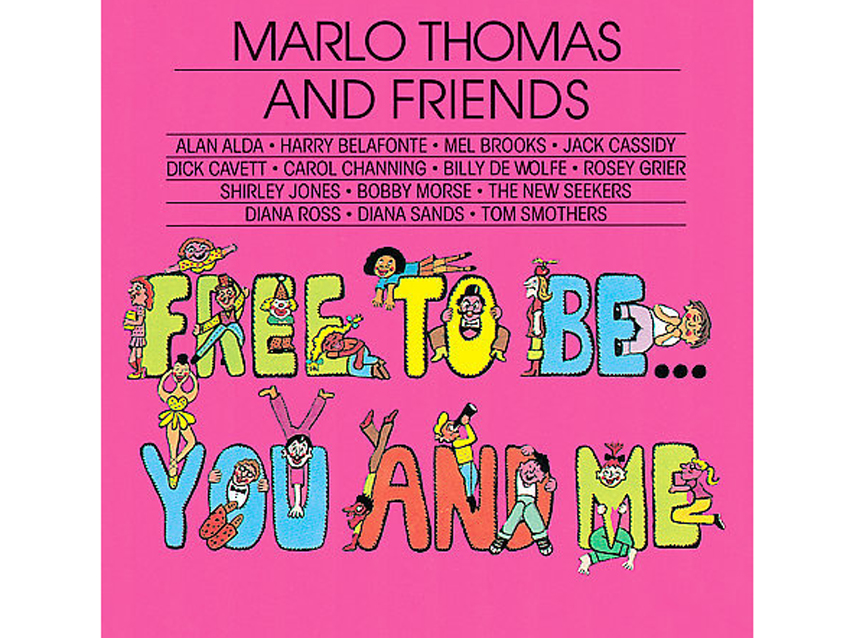
Free To Be… You And Me - Original Soundtrack (1972)
“This was a one-off show on PBS. My sister is close in age to me – she’s one and a half years younger – and we would put on these little plays and vignettes for our parents; some of them came from this record.
“Now that I’m older, I recognize that the sketches in the show was designed to teach kids – ‘Oh, here’s how you shouldn’t be afraid to show emotion,’ and gender roles and things like that. Back then, it was just fun, goofy shit that felt good to sing. They had celebrities doing them, the whole thing.
“It was probably my first real performance-oriented record, being that my sister and I would dress up and act things out. I didn’t imagine it would be influential on me – you don't have that kind of sense when things are happening to you – but I guess in some way it was.”
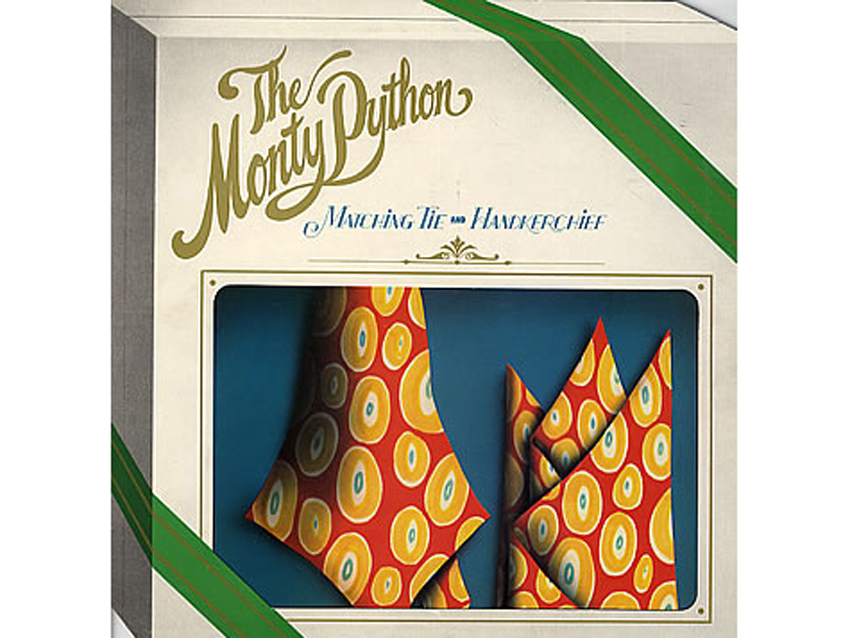
Monty Python - The Worst Of Monty Python (1976), Matching Tie & Handkerchief (1973)
“This might be the most-influential and potentially the most mind-blowing thing for me at the time. There’s The Worst Of Monty Python – a double-album compilation of some stuff that was on TV, along with some things that they did for vinyl – and then there’s Matching Tie & Handkerchief, which is a really great record.
“Matching Tie is pretty notable because of the famous ‘third groove.' That thing fucked me up more than any acid trip I’ve ever been on, and that is not an exaggeration. I didn’t know about it when I first got it; I was just like, ‘It’s Monty Python, so I’m buying it no matter what it is.’ I probably didn’t find out for a month that there was this whole other side; I just thought I was going crazy. I was maybe 12 or 13, and it fucked me so bad.
“I didn’t understand the technology of analogue – you drop the needle in the groove and it magnified the sound. The whole thing was a mystery to me; I still don’t get it, but at least I have a concept of how it works. Beyond the actual contents – which were brilliant, funny and really helped shaped my sense of humor – that third groove fucked with me so hard.”
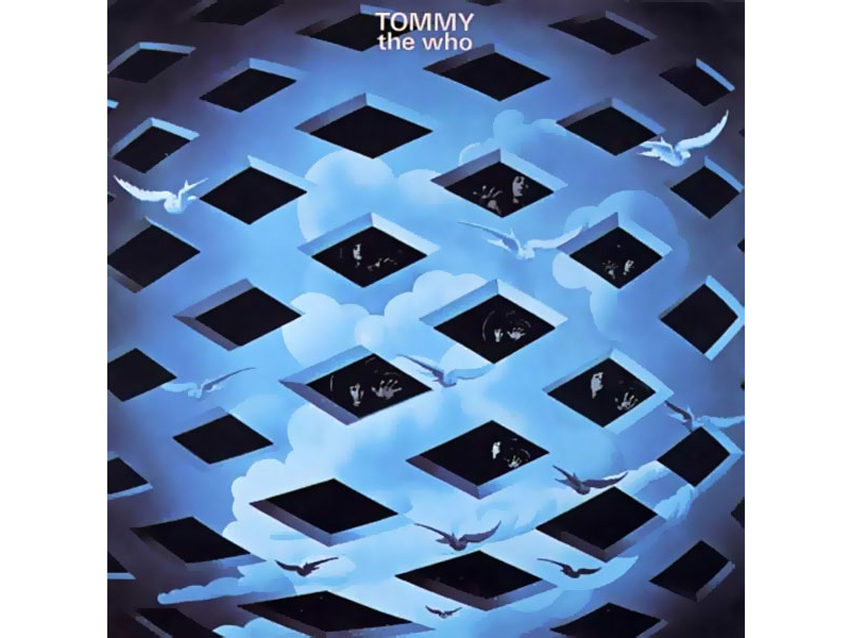
The Who - Tommy (1970)
“Around the same as Monty Python was Tommy. This is not my favorite Who album – far from it – but the idea of this big double album, and the band tells a whole story – I hadn’t thought of such a thing. ‘Oh, you can do that? That’s crazy!’
“Now that I’m older and a huge Who fan – I wasn’t at the time – I can look back at things like The Who Sell Out and go, ‘Oh, well, there’s your concept album.’ Or even on A Quick One, they were stringing together these little songs to make one big one. They’re both superior to Tommy, but at the time, just the idea of Tommy was massive. And I liked the songs, too. The whole thing was pretty trippy and cool.”
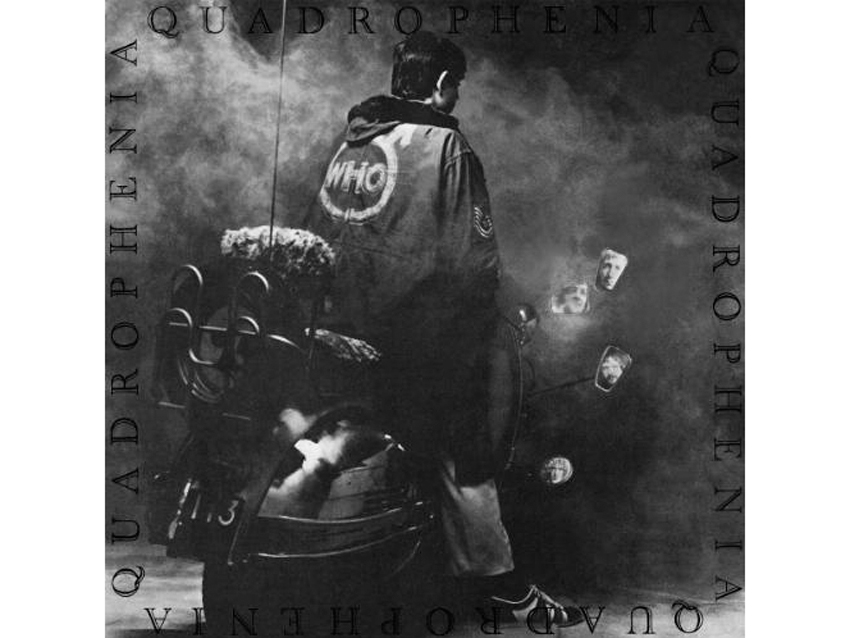
The Who - Quadrophenia (1973)
“This is the only album on the list that would also be on my top 10 favorite albums. The music is amazing, and the lyrics really spoke to me – they still do. The record evokes the feeling I had as an awkward teenager, albeit not one in swinging London in the ‘60s, but rather in the suburbs of Atlanta.
“The feeling of isolation and how you’re starting to become a person, an independent person, but you’re not quite there yet – Quadrophenia is all about that. It grapples with sort of every single issue a kid has to deal with. It’s angry, it’s sad, and it still resonates today.”
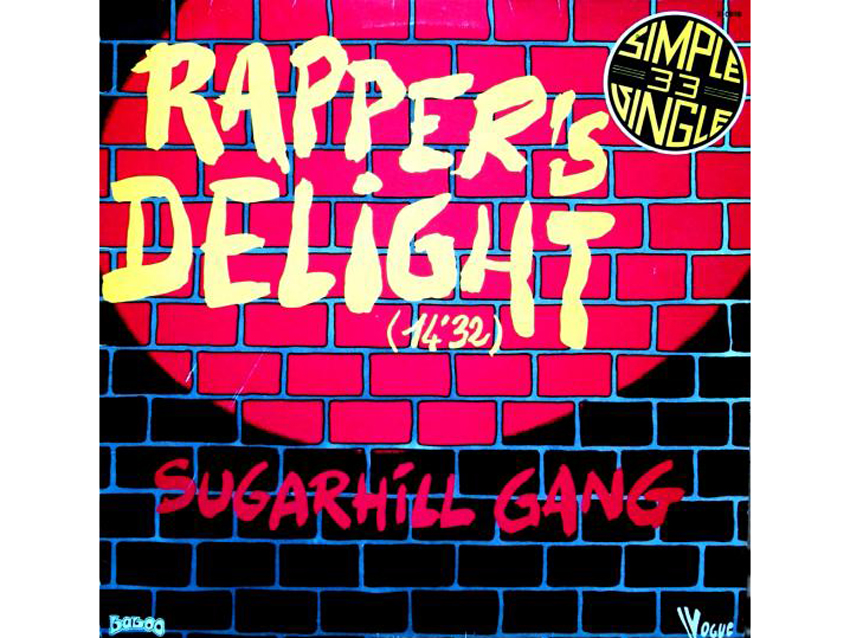
The Sugarhill Gang - Rapper's Delight (1979)
“We moved around a lot when I was a little kid. When I was nine, we went back to Georgia, and I would spend a number of miserable, miserable years in Roswell, Georgia, which is a suburb. I got into what was then called the Northside School Of The Arts in Atlanta, and I immediately went from this 98 percent lilywhite, Baptist, middle-class group of kids to an inner-city school where half the kids were black, 40 percent were white, and rest were other ethnicities – Asians, Indians, Latinos. It was a different world.
“Outside of the occasional Roberta Flack or Sly And The Family Stone that I’d heard before, now I was hearing all of this other music that I hadn’t experienced in Roswell. Rapper’s Delight was one of the first songs I remember that everybody would sing. White, black, Asian, Hispanic – everybody just loved it.
“I don’t want to say something corny like, ‘It kind of brought people together,’ but it kind of brought people together. [Laughs] It was huge in my school; it was huge in a lot of places. You’d sing it and try to remember all the words. It was a really big deal.”
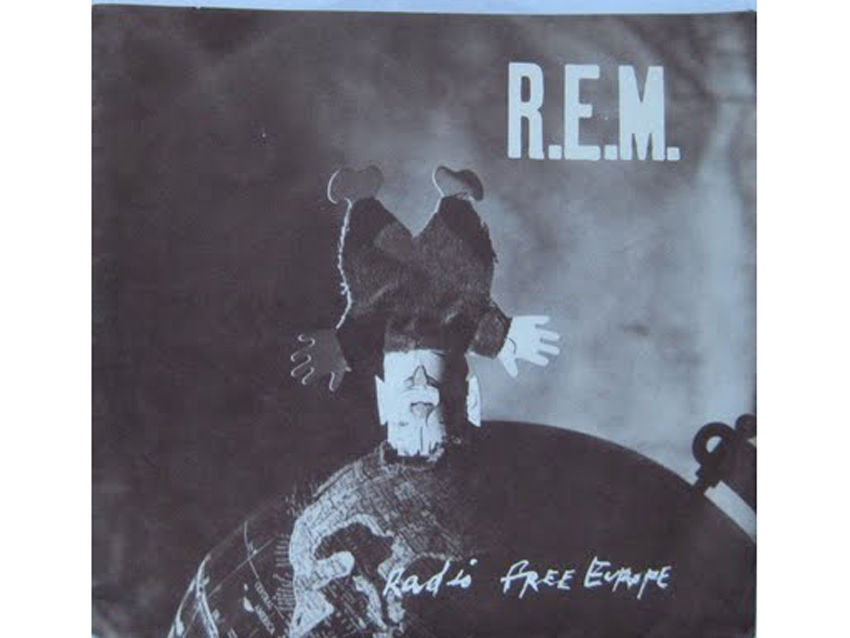
R.E.M. - Radio Free Europe/Sitting Still (1981)
“Roughly around the same time, there was R.E.M.’s Radio Free Europe with Sitting Still as the B-side. I was listening to college stations at this point. There was WRAS and WREK of Georgia State and Georgia Tech, respectively, and they were playing the song.
“I bought it, and I guess you could say it was something of a harbinger, like, ‘OK, I’m heading in this direction’ as far as my musical taste. Once I got into that world, I really got into that world.”
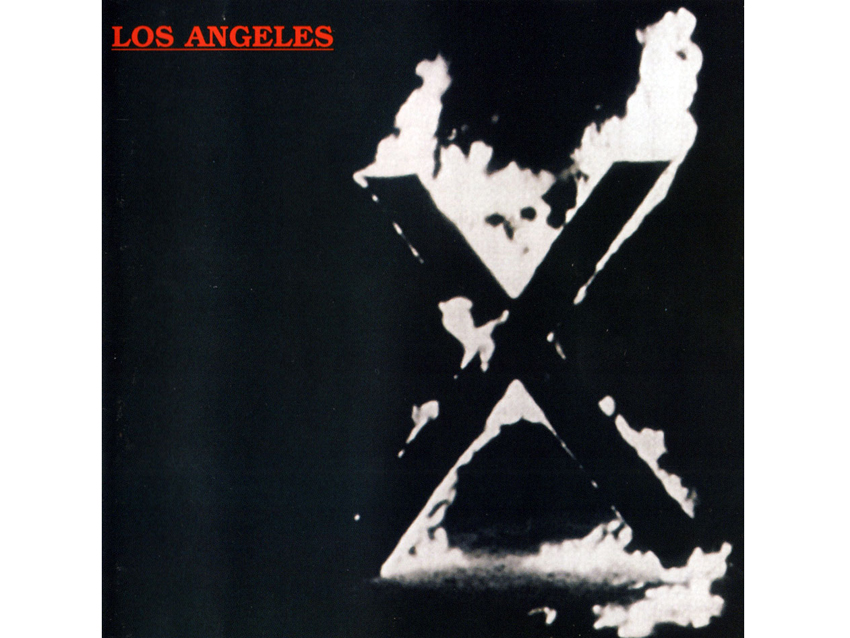
X - Los Angeles (1980)
“Via R.E.M., I got into this record, and by this time I was full-on into that artsy punk world. This is in 1981, and while Atlanta isn’t changing all that much, I certainly was. Instead of listening to Boston and Foreigner and whatever the fuck was out there – Styx – now I’m all about R.E.M., X, Elvis Costello, Gang Of Four, Minor Threat and stuff like that.
“I was in this whole different world. I totally dove in and never turned back. Los Angeles by X was definitely the record that got me into it.”
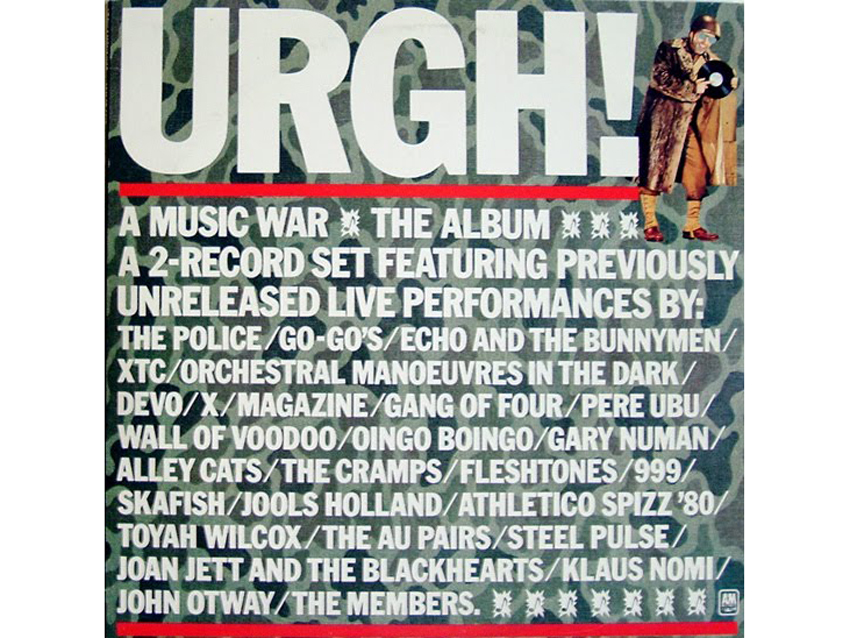
Urgh! A Music War - Original Soundtrack (1982)
“My friends and I would go to midnight movies, which was the thing to do back in my youth. This is the soundtrack to a movie that I saw over and over and over again.
“The record is pretty great, but the performances in the movie were really striking. You know, you’d watch it and go, ‘Oh, shit, you can do that? Now, that’s a show! That’s how you’re supposed to sing a song.’ It was a live element I hadn’t seen before. On some level, it was influential on me.”
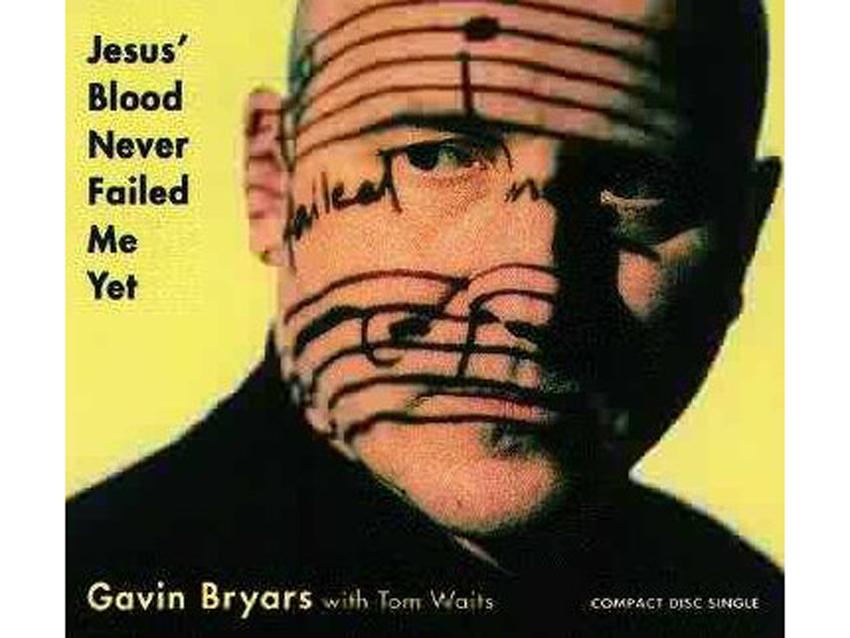
Gavin Bryars - Jesus' Blood Never Failed Me Yet (1971)
“This was the last unique, mind-blowing experience I had listening to something. I should preface that by saying I haven’t done that thing you're supposed to do with the Flaming Lips and the four different CDs, so that might have made this list if I had the equipment to do that.
“This record is really amazing. It’s 72 minutes long, five movements of the same thing, with variations for each movement. It’s simply one of the most hypnotic pieces ever.
“I was in LA and had just gone through this terrible breakup. I was driving one night and it was playing, and I remember having to pull over above this sushi restaurant Yamashiro – I think that's the one, above the Magic Castle. I just sat there for an hour and listened to it while my car idled.
“Gavin Bryars is a classical composer in Britain. I don’t know the whole story, but he was commissioned to score something for a BBC documentary about tramps – we would call them ‘homeless people,’ but their base word is ‘tramps.’ In the film, they come across this guy and he’s singing this little refrain, which is just [sings] ‘Jesus’ blood never failed me yet/ Jesus’ blood never failed me yet/ This one thing I know, for he loves me so/ Jesus’ blood never failed me yet.’ He sings it a couple of times, and they record him on camera, and then they move along.
“Gavin Bryars took that little piece – the part I just sang, in its entirety – looped it over and over and over and over again, and then he scored it very minimally. It just grows. There’s five movements – he issued it initially in one movement, but then he made a 72-minute piece out of it. Tom Waits is on it at one point.
“It’s one of the most fucking phenomenal things ever. If you listen from beginning to end, it’s really powerful.”
Joe is a freelance journalist who has, over the past few decades, interviewed hundreds of guitarists for Guitar World, Guitar Player, MusicRadar and Classic Rock. He is also a former editor of Guitar World, contributing writer for Guitar Aficionado and VP of A&R for Island Records. He’s an enthusiastic guitarist, but he’s nowhere near the likes of the people he interviews. Surprisingly, his skills are more suited to the drums. If you need a drummer for your Beatles tribute band, look him up.
